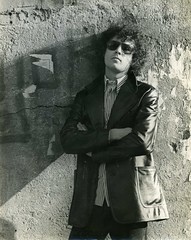Rex Weiner co-founded The East Village Other’s successor, the pioneering New York Ace (1972–73) and according to his FBI file, was a founding staff member of High Times. He recalls getting his start at EVO.
My first week aboard The East Village Other, its venerable editor-in chief Jaakov Kohn squinted at the name I’d signed to an article, clutched his blue pencil spasmodically, and curled his whiskered lips in disdain. In an Eastern European accent nearly as impenetrable as the cloud of unfiltered Lucky Strike smoke curling from the butt in his nicotine-stained fingers, he declared, “You look more like a Rex to me!”
The newly minted moniker echoed amongst my new colleagues in the vast, shadowy loft. At EVO you had the name you were born with and the name that EVO gave you: Jackie Diamond was Coca Crystal, Alan Shenker was Yossarian, Jackie Friedrich was Roxy Bijou, Jaakov was “The Arab,” Charlie Frick was Zod, and so on. And so with my next byline I was reborn in 1970, a new decade with a new name, and on my way as a writer, of sorts.
I’d walked out of the clanking elevator into the EVO office that fall, a 20-year-old N.Y.U. dropout from upstate and a Lower East Side inhabitant since I was 17. Two of my closest friends from high school were lost, one to Vietnam and the other to heroin, allowing me to nurse a tragic heart tinged with righteous political outrage. With half a dozen porn novels credited to my name — or pseudonym — for a Mafia publisher, and a handful of poems I’d recited at St. Marks in the Bowery, I thought of myself as an established writer. I appointed myself EVO theater critic, filling a staff vacancy, and felt right at home. Read more…






